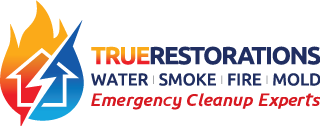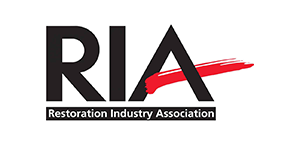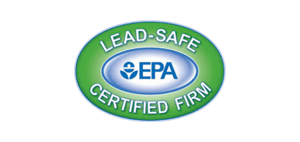Water damage in a house can pose many hazards. If not addressed promptly and appropriately, it can lead to mold growth, structural damage, and compromised indoor air quality. All these factors can greatly affect your health. Therefore, it is critical to determine whether it is safe to sleep in a house with water damage or not.
If you have a water issue in your home, it is essential to assess the extent of the damage. You need to identify the risks and health hazards associated with water damage. Understanding the risks will enable you to take the right measures to secure your safety and home.
Key Takeaways
- Water damage in a house can lead to mold growth, structural damage, and compromised indoor air quality.
- If you have a water issue in your home, it is essential to assess the extent of the damage and identify the risks and health hazards associated with water damage.
- Understanding the risks of water damage will enable you to take the necessary measures to protect yourself and your home.
Common Risks of Sleeping in a Water Damaged House
When you are sleeping in a water damaged house, there are several common risks that you should be aware of. These risks are:
| Risk | Description |
|---|---|
| Mold growth | Water damage can cause mold growth, which can trigger allergic reactions, respiratory problems, and skin irritation. You can see mold growth in the form of discoloration, musty smell, or physical growth. |
| Structural damage | Water damage can weaken the structural integrity of your home, leading to potential collapse or hazards and putting your life at risk. |
| Electrical hazards | Water damage can cause electrical hazards, such as short circuits and electrical shocks, which can be dangerous and even fatal. |
| Compromised indoor air quality | Water damage can lead to poor indoor air quality due to the presence of mold, bacteria, and other contaminants in the air. This can lead to respiratory problems, especially for those with pre-existing asthma or allergies. |
Understanding these risks is crucial because it can help you make an informed decision about sleeping in a water damaged house. It is important to address these risks to ensure that you and your family are protected from the possible dangers.
Health Implications of Sleeping in a Water Damaged House
Exposure to a water damaged house can have serious health implications. One of the most significant exposures is to mold, which can result in respiratory problems such as asthma and allergic reactions. Inhaling mold spores can also lead to symptoms like coughing, sneezing, and throat irritation. Similarly, water damage can create conditions ideal for bacteria and other contaminants to thrive, with potential health impacts ranging from flu-like symptoms to severe neurological disorders.
Additionally, prolonged exposure to indoor air pollution can result in headaches, fatigue, and long-term respiratory issues. The health implications of sleeping in a water damaged house can be severe, particularly if you already suffer from underlying health conditions.
It’s important to remember that even if you don’t see visible signs of water damage, such as stains or discoloration, your home may still be affected. To protect yourself and your family from the negative health impacts of a water damaged house, it is important to take appropriate measures to address any issues. This may involve working with professionals to identify and treat mold growth, improving ventilation, and addressing any leaks or moisture issues in the home.
Steps to Ensure Safe Sleeping in a Water Damaged House
If you have decided to continue sleeping in a water damaged house, there are several steps you can take to ensure safe sleeping conditions.
Addresing mold
Mold is a common issue in water damaged homes and can pose severe health risks. Ensure you eliminate all moisture sources, repair leaks, and fix any structural damage. You can also use an air purifier to remove airborne mold spores and prevent further spread.
Improving indoor air quality
Improve the indoor air quality of your home by using proper ventilation systems. Open windows to increase the flow of fresh air and decrease the accumulation of toxins. Invest in air filters, which can capture bacteria, mold, and harmful particles in the air.
Identifying and repairing structural damage
Water damage can lead to structural integrity issues in your house. Identify and repair all visible and hidden structural damage to ensure the safety of the sleeping environment. This may include walls, foundation, and ceiling repairs.
Minimizing potential hazards
Minimize the potential hazards by removing any water-damaged personal belongings, including furniture, rugs, and carpets. Use waterproof mattress covers to protect yourself from any remaining moisture. Also, use protective gear such as gloves and masks when handling affected areas extensively.
By following these steps, you can mitigate the potential risks and ensure safe sleeping in a water damaged home. However, the best course of action is to address the root cause of water damage. It is safest to consult with a professional restoration company to address the issue before any further damage occurs.
Conclusion
In conclusion, sleeping in a water damaged house can pose significant risks to your health and home integrity. As outlined in this article, potential hazards include mold growth, structural damage, electrical hazards, and compromised indoor air quality.
Exposure to mold, allergens, bacteria, and other contaminants commonly found in water damaged environments can lead to a wide array of health issues. Therefore, it is essential to take appropriate measures to ensure safe sleeping in a water damaged house.
By following the steps outlined in this article, including addressing mold, improving indoor air quality, identifying and repairing structural damage, and taking precautions to minimize potential hazards, you can safeguard your health and protect your home.
Remember, prioritizing your well-being and home safety is paramount when dealing with a water damaged house. Take action today to address any water damage and ensure safe sleeping for you and your family.
FAQ
Is it safe to sleep in a house with water damage?
Sleeping in a water damaged house can pose safety risks. It is important to address the issue promptly to protect your health and home integrity.
What are the common risks of sleeping in a water damaged house?
Sleeping in a water damaged house can lead to various risks including mold growth, structural damage, electrical hazards, and compromised indoor air quality.
What are the health implications of sleeping in a water damaged house?
Sleeping in a water damaged house can have health implications due to exposure to mold, allergens, bacteria, and other contaminants commonly found in such environments.
What steps can be taken to ensure safe sleeping in a water damaged house?
To ensure safe sleeping in a water damaged house, it is important to address mold issues, improve indoor air quality, identify and repair structural damage, and take precautions to minimize potential hazards.
What is the conclusion regarding sleeping in a water damaged house?
By understanding the risks, health implications, and taking necessary steps to ensure safety, you can make an informed decision to prioritize your well-being and protect your home from further damage.
























